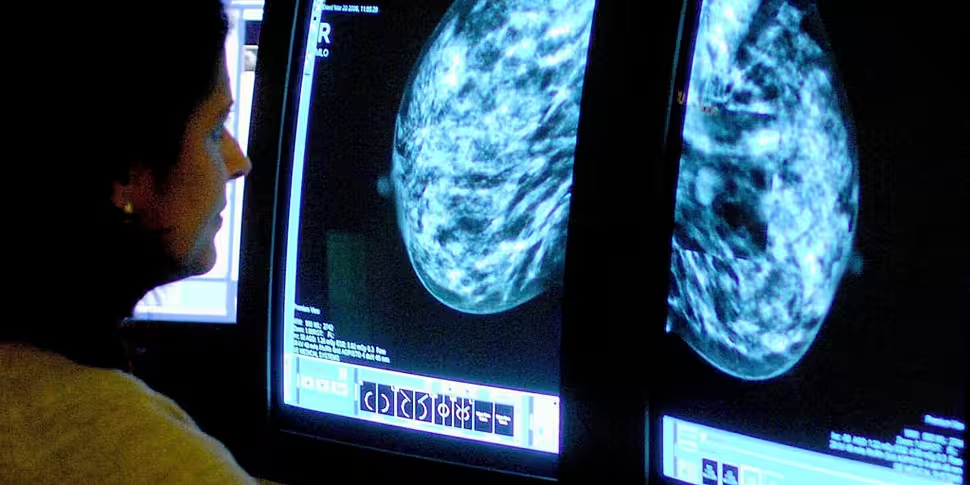There has been a spike in the number of people presenting with breast cancer at an advanced stage.
The origins of the problem are thought to lie in the pandemic when healthcare staff were deployed to help COVID patients and many people felt too scared to leave the house to seek medical attention.
The Marie Keating Foundation and Exact Sciences have launched a new campaign, ‘Do it for the one you love’, urging women to seek help if they think they have breast cancer.
Marie Keating Foundation Assistant Director of Nursing Bernie Carter told Jessica Woodlock for The Pat Kenny Show that there are around 3,400 cases of breast cancer diagnosed in Ireland every year.
“Our five-year survival rate is increasing all the time,” she said.
“In my time and I must say I’m more than 35-years as a cancer nurse, specialising in breast cancer, we have seen survival rates for breast cancer improve.
“Now, the overall survival rate is 88% but we know that if breast cancer is caught at an early stage… it’s 90 to 100% curable.”
As we come to the end of Breast Cancer Awareness Month, Ciara Kelly gives a refresher on how to perform a breast self-exam, on The Anton Savage Show. pic.twitter.com/jE7wPJIS9r
— NewstalkFM (@NewstalkFM) October 30, 2021
One woman who received an early diagnosis of breast cancer was Orla Hunt who is currently undergoing a form of oral chemotherapy.
She was given the news on her niece's birthday which was coincidentally the same day her father was told he had only a few weeks to live.
“It was a really bad day, not one that I’m ever going to forget and my poor niece, her birthday is a little bit overshadowed by the negative,” she said.
“It was awful, it was a very hard day.”
Despite the difficult months she has endured since her diagnosis, Ms Hunt still feels hers is a “good news story”.
“I had early detection, diagnosis, treatment and within 12 months it’s almost finished,” she said.
Self-check
The Marie Keating Foundation advises women to check their breasts once every month so that any changes can be promptly checked by a GP.
“If you’re still having your period, the most important time to check your breasts is about five to seven days after the period,” Ms Carter said.
“If you’re no longer having the period, then we would say choose your birthday date and check every month.
“It takes about five minutes.”
Ms Carter said it is important to work out what your own “normal” looks like, so you can sense any changes.
“Check the nipples… has your nipple changed?” she said.
“We would also encourage people to check around the nipple area, the areola, for any changes.
“Then to look at the skin; what you’re looking for is what we would call ‘orange peel type skin’, puckering, dimpelling and redness because not all breast cancers are a lump.
“Look for veins that might stand out more than usual and that’s the looking part.”
Ms Carter also said feeling your breasts is an important way of making sure they are healthy.
“Using the padding of the three fingers or maybe the heel of the hand,” she suggested.
“We would recommend going in a clockwise direction - because you want to make sure you don’t miss anything.
“Starting on the nipple, working your way all around up to the collarbone and into the armpit.”
The HSE suggests anyone with any concerns contact their GP immediately.
You can listen back here:
Main image: A consultant analysing a mammogram. Picture by: Rui Vieira/PA Archive/PA Images









